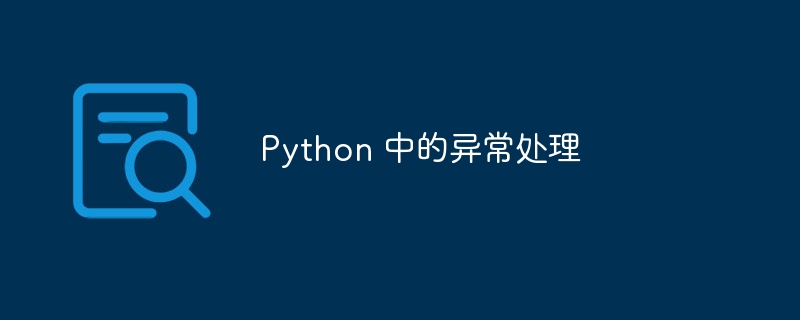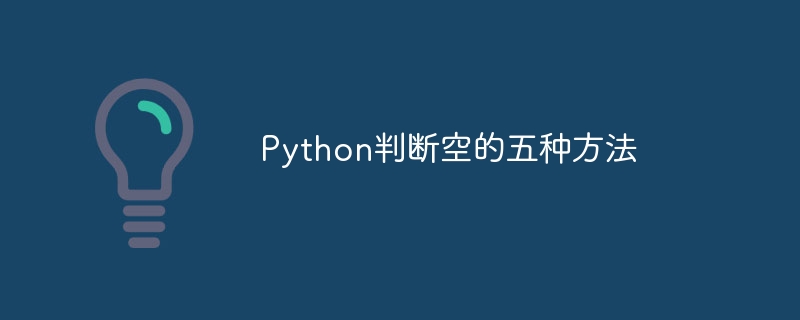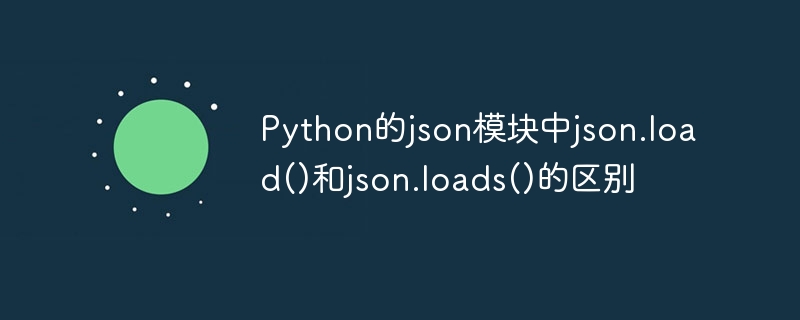
本文探讨了 python 中用于处理异常的各种技术,包括 try- except 块、自定义异常以及异常链接和丰富等高级功能。
python 提供了一个强大的异常处理框架,它不仅允许程序员实现防止崩溃的代码,而且还提供反馈并保持应用程序稳定性。此外,它使开发人员能够使用 try- except 块、自定义异常等结构优雅地管理错误。
- 尝试除外块
在 try- except 块中,可能引发异常的代码放在 try 块中, except 块指定发生异常时要采取的操作(python software foundation,n.d.)。
立即学习“Python免费学习笔记(深入)”;
例如:
try:
result = 1 / 0
except zerodivisionerror:
print("cannot divide by zero.")
要在一个 try- except 块中捕获多个异常,我们可以使用带有多个 except-块的 try 块来为每种异常类型生成特定的响应。或者,我们可以使用元组通过单个异常表达式捕获多个异常。
例如:
# one try block and several except blocks
try:
result = 1 / 'a'
except zerodivisionerror:
print("cannot divide by zero.")
except typeerror:
print("type error occurred.")
# one try block and one except tuple block
try:
# some operation
result = 1 / 'a'
except (zerodivisionerror, typeerror) as e:
print(f"error occurred: {e}")
- else 子句
else 子句位于 try- except 块之后,如果 try 块没有引发异常,则运行该子句。
例如:
try:
result = 1 / 2
except zerodivisionerror:
print(“cannot divide by zero.”)
else:
print(“division successful.”)
- 最后子句
finally 子句始终放置在 try 块或任何 except 块之后。它包含无论如何都会运行的代码,通常用于清理文件或网络连接等资源,即使引发异常也是如此。
例如:
try:
result = 1 / ‘a’
except zerodivisionerror:
print(“cannot divide by zero.”)
except typeerror:
print(“type error occurred.”)
else:
print(“division successful.”)
finally:
print(“goodbye, world!”)
- 加薪声明
引发异常:raise 子句通过强制异常发生来引发异常,通常表示尚未满足某个条件。
例如:
if ‘a’ > 5:
raise valueerror(“a must not exceed 5”)
- 异常链
您可以使用 raise 子句来链接异常。这对于向原始错误添加上下文非常有用。
例如
try:
open(‘myfile.txt’)
except filenotfounderror as e:
raise runtimeerror(“failed to open file”) from e
- 自定义例外
您可以通过继承 exception 类或任何其他内置异常类来定义自己的异常类(mitchell,2022)。
例如:
class my_custom_ (exception):
pass
try:
raise mycustomerror(“an error occurred”)
except mycustomerror as e:
print(e)
- 丰富例外
您可以使用 add_note() 方法将信息或上下文添加到异常中,将自定义消息或注释“附加”到异常对象(又名 e.
)例如:
def divide_numbers(a, b):
try:
result = a / b
except zerodivisionerror as e:
e.add_note(“cannot divide by zero”)
e.add_note(“please provide a non-zero divisor”)
raise
try:
num1 = 10
num2 = 0
divide_numbers(num1, num2)
except zerodivisionerror as e:
print(“an error occurred:”)
print(str(e))
处理异常很重要,原因如下:
- 防止程序崩溃:未处理的异常可能会导致程序崩溃,从而导致数据丢失和糟糕的用户体验。
- 提供有意义的错误消息:通过处理异常,您可以向用户提供信息丰富的错误消息,帮助他们了解出了什么问题以及如何修复它。
- 允许优雅降级:异常处理使程序即使发生错误也能继续运行。
一个简单的程序错误处理示例:
##-------------------------------------------
# pseudocode:
# 1. define a custom exception class called customerror.
# 2. create a function that raises the customerror exception
# based on a condition.
# 3. use a try-except block to handle the customerror exception.
#-------------------------------------------
# program inputs:
# - num: an integer value.
#-------------------------------------------
# program outputs:
# - custom exception message when the customerror exception is raised.
# - success message when no exception is raised.
#-------------------------------------------
class customerror(exception):
'''
a custom exception class.
'''
pass
def check_number(num):
'''
checks if the given number is positive.
:param int: num, an integer value.
:raises customerror: if the number is not positive. :return: none
'''
if num <= 0:
raise customerror("number must be positive.")
print("number is valid.")
#--- main program
def main() -> none:
'''
the main function that demonstrates the usage of custom exceptions.
'''
try:
check_number(5) # valid number
check_number(-2) # raises customerror
except customerror as e:
print(f"error: {str(e)}")
#--- execute the program
if __name__ == "__main__": main()
>>> Number is valid. Error: Number must be positive.
总而言之,python 提供了一个全面的异常处理框架,允许程序处理意外情况而不会突然失败。通过利用 try-except 块、自定义异常等结构以及异常链接和丰富等高级功能,开发人员可以确保他们的程序具有弹性、用户友好,并且能够优雅地处理意外情况。
参考文献:
米切尔 r(2022 年,6 月 13 日)。自定义异常。 _python 基础培训 _[视频]。领英学习。 https://www.linkedin.com/learning/python-essential-training-14898805/custom-exceptions?autoskip=true&resume=false&u=2245842
python 软件基础。 (日期不详)。 8.错误和异常。 python。 python.org.
最初于 2024 年 8 月 21 日发表于 exception handling in python - medium。
以上就是Python 中的异常处理的详细内容,更多请关注php中文网其它相关文章!





